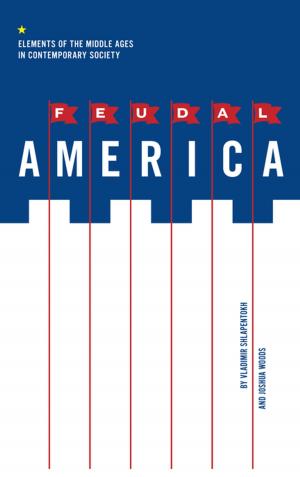Reconstructing Rawls
The Kantian Foundations of Justice as Fairness
Nonfiction, Religion & Spirituality, Philosophy, Political, Ethics & Moral Philosophy, Social & Cultural Studies, Political Science, Politics, History & Theory| Author: | Robert S. Taylor | ISBN: | 9780271076492 |
| Publisher: | Penn State University Press | Publication: | February 24, 2011 |
| Imprint: | Penn State University Press | Language: | English |
| Author: | Robert S. Taylor |
| ISBN: | 9780271076492 |
| Publisher: | Penn State University Press |
| Publication: | February 24, 2011 |
| Imprint: | Penn State University Press |
| Language: | English |
Reconstructing Rawls has one overarching goal: to reclaim Rawls for the Enlightenment—more specifically, the Prussian Enlightenment. Rawls’s so-called political turn in the 1980s, motivated by a newfound interest in pluralism and the accommodation of difference, has been unhealthy for autonomy-based liberalism and has led liberalism more broadly toward cultural relativism, be it in the guise of liberal multiculturalism or critiques of cosmopolitan distributive-justice theories. Robert Taylor believes that it is time to redeem A Theory of Justice’s implicit promise of a universalistic, comprehensive Kantian liberalism. Reconstructing Rawls on Kantian foundations leads to some unorthodox conclusions about justice as fairness, to be sure: for example, it yields a more civic-humanist reading of the priority of political liberty, a more Marxist reading of the priority of fair equality of opportunity, and a more ascetic or antimaterialist reading of the difference principle. It nonetheless leaves us with a theory that is still recognizably Rawlsian and reveals a previously untraveled road out of Theory—a road very different from the one Rawls himself ultimately followed.
Reconstructing Rawls has one overarching goal: to reclaim Rawls for the Enlightenment—more specifically, the Prussian Enlightenment. Rawls’s so-called political turn in the 1980s, motivated by a newfound interest in pluralism and the accommodation of difference, has been unhealthy for autonomy-based liberalism and has led liberalism more broadly toward cultural relativism, be it in the guise of liberal multiculturalism or critiques of cosmopolitan distributive-justice theories. Robert Taylor believes that it is time to redeem A Theory of Justice’s implicit promise of a universalistic, comprehensive Kantian liberalism. Reconstructing Rawls on Kantian foundations leads to some unorthodox conclusions about justice as fairness, to be sure: for example, it yields a more civic-humanist reading of the priority of political liberty, a more Marxist reading of the priority of fair equality of opportunity, and a more ascetic or antimaterialist reading of the difference principle. It nonetheless leaves us with a theory that is still recognizably Rawlsian and reveals a previously untraveled road out of Theory—a road very different from the one Rawls himself ultimately followed.















